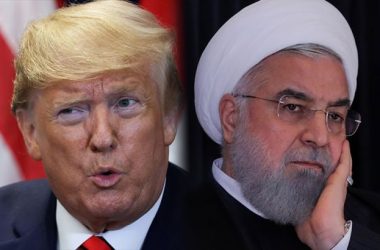
Once that point is made, there will be an opportunity to remind the public that this is the muckrakers of the progressive era; this age of embracing whistleblowers; and this is the point of journalism: to provide information, to challenge, dig, shed light, and to expose. As H.L. Mencken once said, “Journalism is to a politician as dog is to a lamp-post.” Not a bad lesson for journalists themselves to re-learn.
Journalists, Muckrakers and whistleblowers may regard the case for transparency in government as self-evident, but the case can and should be made anew. The past and current government’s era provides an opportunity to go back to first principles and remind the public why the freedom of the press is enshrined in the Constitution. Don’t take it for granted that the public has connected all those dots.
Transparency is a virtue, anyone who acts in secrecy and fears the day his or her actions are exposed knows what they do is wrong. We should appreciate the role of investigative muckrakers, whistleblowers, the leakers, and anyone who exposes truth. We should use the truth to determine our own informed response and demand transparency from those who profess to represent us.
President Adama Barrow administration’s penchant for secrecy is not a media issue; it is a democracy issue. The lack of definitional precision for strengthening accountability, the importance of government transparency, respect to probity, and enhancing good governance makes it the weak spot in Barrow’s otherwise successful measures to curb mega sleaze and corruption .
Ponder this irony: A political movement driven by populist fervor is now aggressively shutting the public out of the business of government.
The proclivity for concealment extends from State House briefings to government agencies to the executive, the judiciary and the legislative’s taste for hiding institutional processes from the prying eyes of taxpayers.
President Barrow, meanwhile, has not authorized the Ombudsperson from disclosing on the release of his Assets and Liabilities Declaration, and all of his Cabinet Ministers, senior government official and Security Heads from the general public and the news medias to scrutinize their dockets supposedly to “protect the confidentiality” of the public document and government officials who submitted them. President Barrow media aides have not provided information at otherwise routine news briefings concerning dockets about all Assets and Liabilities of serving and sacked Cabinet Ministers examining about their wealth.
Admittedly things change fast, but so far opinions about openness in government have not splintered along ideological lines. (The attacks on leaks is perhaps another matter.)
There is no populist groundswell insisting that the government be trusted to run in privacy, or the public be kept in the dark. This is especially true when trust in government institutions seems to be at historical lows on both sides of the political spectrum. Sunlight is always a good disinfectant, but never more so than when the public is convinced that we are disinfecting a fetid swamp.
The Gambian people should Strongly recommend that the National Assembly, as part of their oversight function, enact coherent and comprehensive legislation on the protection of both muckrakers and whistleblowers in line with international standards and best practices.
Muckrakers and whistleblowers should never be prosecuted for exposing the unlawful practices of our government. They are courageous and should be protected, not punished! Instead they should be protected and rewarded for expose and publishes the misdeeds, such as criminal acts or corruption, of a public individual for profit or gain. Prosecution of muckrakers and whistle blowers is dangerous.
The principles of transparency and openness are at great risk if we continue to allow governments to seek out and prosecute those who leak important and revealing information for the benefit and information of the people.
It is the duty of the people to hold their governments to account. Investigative muckrakers and whistleblowers play a key role in enabling this scrutiny through transparency. As citizens, as free businesses, and as a species that requires social interaction and connectivity to thrive, we should all do more to protect and reward them.
Muckrakers and whistleblowers perform an essential service in ensuring transparency – often where government would keep us in the dark. There are at present very few means by which wrongdoing within government agencies can be exposed, and therefore it falls to individuals.
There is no question that protecting national security is important, but public interest journalism and individual ethics have their place in democracy alongside security and the law. Governments are instituted among men, deriving their just powers from the consent of the governed whenever any form of government becomes destructive of these ends, it is the right of the people to alter it or protest.
The Official Secrets Act (OSA) of 1922 obstructs the participation of society as it shields information from the public by means of criminalizing whistleblowers and journalists who expose corruption and mismanagement to the media and public.
By limiting the reporting of corruption to authorities, the Official Secrets Act (OSA) of 1922 promotes an environment that breeds corruption primarily because secrecy allows for cases to be squashed without an explanation.
On the other hand, exposing corruption to the public creates a democratic space which holds the authorities accountable at every stage of the investigation. This is a pre-requisite for any serious endeavor in cutting corruption in this country.
As such, by criminalizing whistleblowers and by perpetuating an atmosphere that accelerates corrupt practices, the Gambia increasingly losing its credibility as a democratic nation that upholds justice in a transparent and accountable manner. The Gambian people must call upon the authorities to stop harassing members of the public and alike, who blow the whistle on corrupt practices that can only destroy the health of our democracy.
The Civil Society should call upon the authorities concerned or the National Assembly to review the Official Secret Act of 1922 and draw up a moratorium on using it against whistleblowers in cases of public interest. Members of the National Assembly of the Second Republic unanimously modified the Official Secret Act at the second meeting of the Assembly in the 2008 Legislative year. Presenting the bill for modification, Aja Isatou Njie-Saidy, then Vice President and secretary of state for Women’s Affairs recalled that, the Official Secret Act Modification Bill, defending and justifying the bill stated that the “object and intend of the modification “is to provide penalties for any unauthorized disclosure of official information’s and documents including spying, using of official secret codes and passwords as well as the use of unauthorized retention, possession or use of official documents”.
Democracy in the digital era and the threat to Privacy and Individual Freedoms highlights the need for democratic oversight and transparency. Muckrakers and whistleblowers play a crucial role in ensuring transparency and freedom of information.
We should strongly condemn the authorities for any rash action to arrest and prosecute journalists, muckrakers and whistleblowers under the provisions of the colonial law Official Secrets Act (OSA) 1922.
A responsible legal person, Mr. Alhagie Badjie exercised his duty to the public by blowing the whistle on what appears to be mismanagement and maladministration at the State Intelligence Services, for alleged misuse of power and abuses of office. Instead, Mr. Badjie the whistleblower was arrested for alleged providing information to journalists. This undemocratic action is in violation of the principles of transparency and openness in government.





